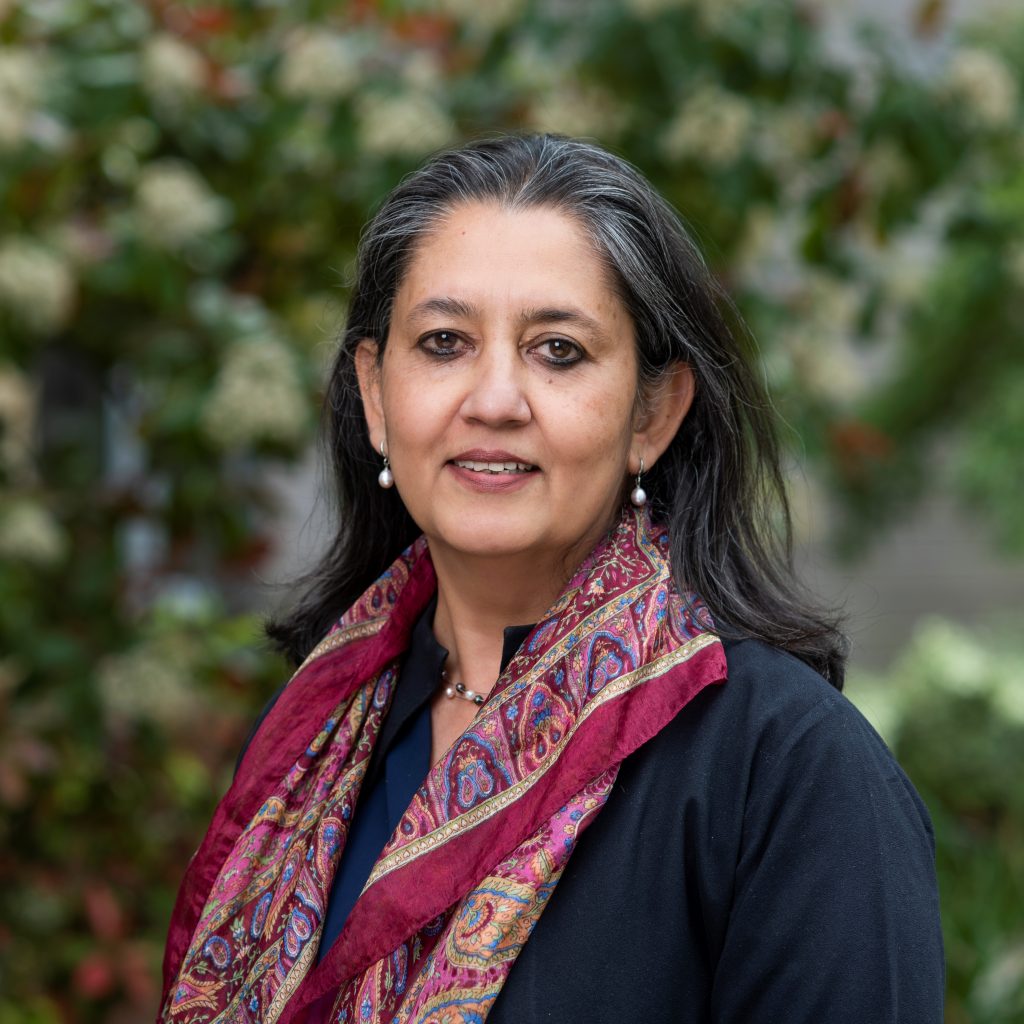Dr Sonali Nag is Professor of Psychology and Education and Education Fellow of Brasenose College.
Sonali is also convenor of the Child Development and Learning group and the lead for the Language, Cognition and Development Theme in the Department.
Trained in psychology, and with inter-disciplinary research interests, Sonali investigates child learning within diverse settings. Her research is comparative with a focus on languages, writing systems, cultural settings and levels of socio-economic status. She uses a wide variety of methods including surveys in schools and home settings, child assessment, corpora analysis, secondary data analysis, and narrative reviews. Her work seeks to develop a nuanced and contextually grounded understanding of child development. Her research can broadly be categorised into the study of child level factors and contextual factors.
Sonali studies writing systems, language and literacy development. A primary location for this work is multilingual India, with a focus on Kannada, Bengali, Tamil, and Hindi. With her students, Sonali has also worked in other languages in Asia (e.g., Thai, Sinhala, Filipino, Manchu and Mandarin), Africa (e.g., Swahili) and Europe (e.g., Albanian, English). Taken together, this body of work has helped understand how particularities of a language and design features of a writing system influence learning. Since 2020, she is working with collaborators on interventions that can support children’s oral language development. Another line of recent work is to examine children’s books to better map the real world demands on reading with comprehension among young learners.
Sonali also studies the effects of contextual factors on literacy learning using an unparalleled database of thirty-years of research in low- and middle-income countries. This work synthesises descriptive, correlational and causal evidence to inform theorising, policy and practice. The work on child assessment, for instance, has drawn attention to large-scale replication of western tests even when education systems are not teaching a European language or alphabetic system. The examination of interventions to support literacy learning highlights little attention to potentially useful cultural practices linked to oral and choral language traditions and learning-by-writing.
She serves as a reviewer for national and international research councils and high impact journals in the fields of child development, experimental and developmental psychology, psycholinguistics, neuroscience, education, and development studies. She has initiated and led international networks for the study of the akshara writing system of Asia, foundation learning in low- and middle-income countries, and supporting language development at school entry. She has written evidence briefs, drafted education policies, and led reform of curricula for the early childhood and primary school years. She has been an invited panel member in agenda-setting meetings for multilateral agencies. Sonali particularly enjoys working with practitioners and supporting practitioner networks.
FEATURED PUBLICATIONS WITH LAY SUMMARIES
- Nag, S., Vagh, S. B., Dulay, K. M., Snowling, M., Donolato, E., & Melby-Lervåg, M. (2024). Home learning environments and children’s language and literacy skills: A meta-analytic review of studies conducted in low- and middle-income countries. Psychological Bulletin, 150(2), 132–153. https://doi.org/10.1037/bul0000417 [Blog posts on this paper: Home is where the learning starts; When countries have high income inequality]
- Nag, S., John, S. & Agrawal, A. (2024). NSP-SCD: A corpus construction protocol for child-directed print in understudied languages. Behavioural Research Methods. 56, 2751–2764. https://doi.org/10.3758/s13428-024-02339-x [Blog post on this paper: Supporting all children to thrive]
- Roque-Gutierrez, E, Singh, S., Simmons, H., George, E. E., Sharxhi, E., Arulmani, G., Sen, S. & Nag, S. (2023) Films for teachers: supporting language-and-literacy preschool pedagogy. UKFIET, Oxford: UK [Blog post on this presentation: Films for teachers; see here for the Playlist]
- Nag, S. (2023). Socioeconomic Status, Sociocultural Factors, and Literacy Development. In L. Verhoeven, S. Nag, C. Perfetti, & K. Pugh (Eds.), Global Variation in Literacy Development(pp. 333–352). Cambridge: Cambridge University Press. [Listen to Sonali in this interview: A system that is failing a generation of kids; and see her work with policy and practice: Putting children first]
- Nag, S. (2021). How children learn to use a writing system: Mapping evidence from an Indic orthography to written language in children’s books. Written Language and Literacy, 24(2) 284-302. https://doi.org/10.1075/wll.00056.nag [Updates on this and similar other research: Looking at children’s books to fill gaps in the science of reading]
- Nag, S. (Feb, 2007). Early reading in Kannada: The pace of acquisition of orthographic knowledge and phonemic awareness. Journal of Research in Reading, 30(1), 7-22. https://doi.org/10.1111/j.1467-9817.2006.00329.x [See here for a lay summary]
External Doctoral Students
Tonia Naomi William (Experimental Psychology)












